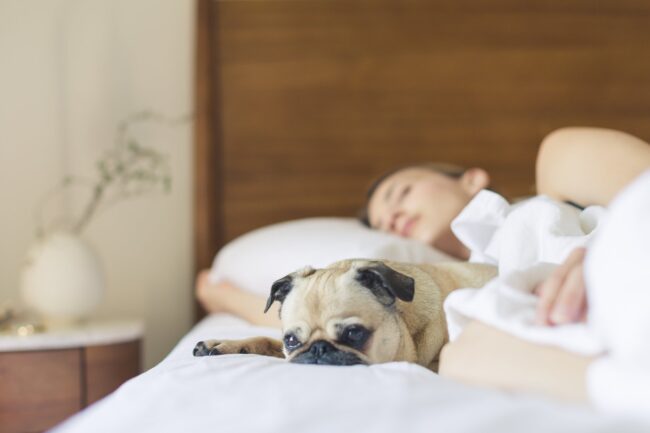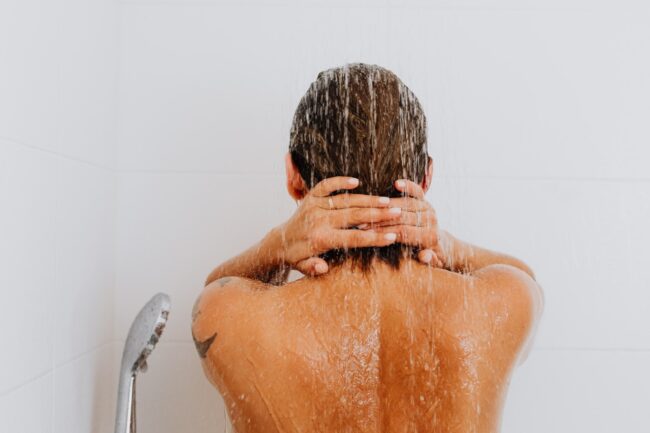Spring is here, so you can enjoy warm temperatures, blooming flowers, and singing birds. If you suffer from seasonal allergies, chances are that you’re not exactly happy about it. Sure, you no longer have to shovel the snow, but you have to deal with allergic rhinitis. Pollen and increased air pollution are mostly to blame for troublesome symptoms like sneezing, watery eyes, and, generally feeling sick. Allergic rhinitis affects people worldwide. If you’ve made a major geographic change lately, don’t be surprised if your spring allergies are worse. In Canada, for instance, allergy season can start at different times depending on how each province is faring.
Besides outdoor allergens, you have to worry about household allergens, such as dust mites, mold, pet dander, and cockroaches. Having allergies can make you miserable. It interferes with your concentration, performance, and, most importantly, sleep. Sleep is affected because the allergens irritate the nasal passages, making breathing a lot more difficult. Nasal congestion and other allergy symptoms typically get worse at night. It’s difficult to get a good night’s sleep. But it’s not impossible. Keep on reading to find out what you can do to sleep better at night. You’ll no longer experience sleep issues.
1. Improve your indoor air quality

Staying indoors is a fantastic way to avoid pollen and carbon emissions, but don’t forget that the air inside your home is dirty too. A growing scientific body suggests that the air within homes and other buildings can be seriously polluted, especially in industrialized cities. Given that you spend so much time indoors, you should really make an effort to improve indoor air quality, which can impact your allergy. Avoid using pesticides or toxic cleaners and make sure that your HVAC is properly maintained. The air conditioner’s filter captures the allergens when they become airborne, so it’s less likely to experience allergy symptoms or asthma attacks.
Most importantly, you have to keep the house clean. Practicing good indoor hygiene helps eliminate dust or animal dander, which means that there won’t be so many allergens lurking around in your home. Vacuum the carpets and area rugs at least once a week. Ideally, you should have a cleaner with a HEPA filter. Wash the bedding, drapes, and other items that tend to attract allergens as often as you can. It’s recommended to have them washed in water that is at least 130 degrees. If they can’t be washed hot, keep them in the dryer for at least 15 minutes at a temperature that is above 150 degrees.
2. Consider anti-allergy sleepwear

If you’re like other people, you sleep in workout gear. The clothes may be comfortable, but they’ll compromise how well you’re sleeping. If you want to get a good night’s sleep, you might consider changing your sleepwear. Get a pair of hypoallergenic pajamas to sleep comfortably and undisturbed. They’re made from natural cotton, so the pajamas don’t trigger irritations or allergic reactions. If you want stylish, comfortable sleepwear that’s produced locally by a Canadian brand, look into sleepwear such as that provided by This is J, which is eco-friendly and sustainable. The pajamas are consciously crafted from bamboo that is naturally hypoallergenic. Unlike cotton, bamboo doesn’t need to be mercerized to enhance its luster and dye-ability.
Bamboo is one of the most breathable fabrics on the market. It’s naturally porous, meaning that air flows through it easily. A pair of pajamas made from this fabric is exactly what you need. Most people think of bamboo cotton as an exclusive fabric, but the truth is that it’s not that expensive. If you want to enjoy a good night’s sleep, bamboo sleepwear must be an important choice. The pajamas allow your body to eliminate the extra heat while keeping the sufficient amount of warmth. Basically, bamboo pajamas are comfortable and cool during spring or summer and warm during wintertime.
3. Ban your pet from the bedroom

Sleeping with your dog in bed provides security and comfort. Sleeping with pets isn’t unusual, no matter what country you’re from. People and their pets are getting closer and closer, so they’re happy to share their bed with their dog or cat. If you suffer from allergic rhinitis, you should ban your dog from the bedroom. Dogs, in particular, track pollen, dirt, and grass, meaning that you’re constantly exposed to allergens. If you want to give your nose a rest, don’t sleep with your pet anymore, even if it breaks your heart. Prohibit your pet’s access to the bedroom and use a HEPA air cleaner. It can capture particles of various sizes in an efficient manner.
Make sure to bathe your pet every week to reduce the level of allergy-causing dander. The question now is: How do you keep your pet out of the bedroom? You should have taught obedience ahead of time. If your dog doesn’t listen to basic commands, install a fence. This will provide a physical blockage, so the pooch can’t enter the restricted area. You can use pet fences for just about any area of the home. Set up a designated spot for your dog to sleep. You can use a bed or a cage. Use reward-based target training to teach the dog to associate the sleeping area with beautiful things. With time they will get used to sleeping there and will even like it.
4. Shower at night, not in the morning

An evening shower is good for your skin because it cleans it thoroughly. You can minimize your contact with allergens. Hop in the shower before going to bed and get rid of any lingering allergens. The steam from the shower will help clear your sinuses, which provides much-needed relief. The shower will change your body’s temperature, so you’ll sleep faster and more easily. It may help relieve any pain or cramping that you’re experiencing. Test the temperature of the water carefully before going into the shower. If there’s no hot water, fill the bathtub with a few inches of hot water and pour boiling water. Don’t forget that your body will disperse the water.
